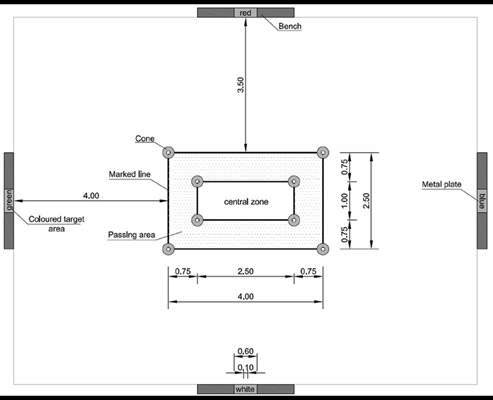Important–but not surprising–study in Medicine & Science in Sports & Exercise. Researchers looked at two separate issues: 1.) mental fatigue and physical performance and 2.) mental fatigue and soccer skill performance.
- Mental fatigue was induced by 30 minutes of a mentally fatiguing Stroop task (control was 30 minutes of magazine reading).
- Physical performance was assessed with the YoYo Intermittent Recovery Test, Level 1 (Yo-Yo IR1) and various measures (distance run, heart rate, RPE).
- Soccer-specific technical performance was measured using the Loughborough Soccer Passing and Shooting Tests (LSPT, LSST).
The authors found that mental fatigue has a significantly negative impact on performance during a soccer match.
Conclusion from the authors:
This investigation, utilising two separate studies, demonstrates that mental fatigue impairs both physical and technical performance of soccer players.
- Study 1 revealed that mentally fatigued soccer players reach the point of exhaustion during the Yo-Yo IR1 test earlier than in the control condition. This impairment to physical performance seems to be mediated by the negative effect of mental fatigue on perception of effort rather than peripheral changes to the cardiovascular, metabolic, and neuromuscular factors commonly associated with exercise tolerance and muscle fatigue.
- Study 2 revealed that mentally fatigued soccer players maintain the ability to perform soccer-specific technical tasks within similar time-constraints as in the control condition. However, when mentally fatigued, soccer players commit more passing and ball control errors and reduce both shot speed and accuracy.
- This multifaceted effect of mental fatigue on physical and technical performance of soccer players suggests that mental fatigue may have a very negative impact on performance during a soccer match.
- Therefore, we suggest that coaches and players assess their pre-match activities to ensure players do not engage in tasks requiring sustained attention for 30 min or more prior to competition, as this may induce mental fatigue and impair performance.
- Furthermore, sport scientists and coaches should identify and implement strategies, such as half-time caffeine supplementation that reduce the mental fatigue induced by the high cognitive demands of playing soccer for up to 90 minutes.

